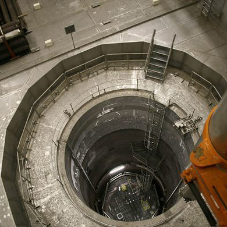![]()
Hiring a generator is a core principle of many business’s power needs. Without having a backup energy source, many industries would lose power and money through not being able to function properly.
In such a technologically advanced society, having access to electricity is a fundamental concept and this is important for any business regardless of the sector. Without electricity, security systems in prisons can fail, life-saving machinery in hospitals can malfunction and confidential information in data centres can be lost.
Only recently the future of a folk festival in Woburn Sands in Milton Keynes was called into question when three of its generators were stolen. The generators, which were worth around £6,000, were integral to provide power for the event’s main stage, stalls and bouncy castle. Without such devices, thousands of disgruntled fans can be left with a venue but no music.
You won’t realise just how much your business relies on electricity until it’s gone. An online marketing firm cannot achieve rankings for clients without access to the web; a hospitality business cannot store food correctly if the power fails; and a construction firm cannot house tenants without electricity.
So what exactly are generators and how can they improve your business? Here is a guide to the much-valued machinery.

What is a generator?
A generator is a piece of equipment which provides electricity should there be a power cut. They vary in size, type and power depending on what they are being used for but essentially they are a dependable back-up source when you lose power. What is means is if there is a power failure, you get electricity back quickly.
What are the advantages?
• Save money in the long-term with the fuel efficiency
• Maintain your business’ reputation
• Some generators come with voltsafe security for anti-vandal
• Easy to operate so less maintenance required
• 24 hour protection
• Weather resistant due to durable equipment
• Peace of mind that you will always have a power supply
Who can benefit from a generator?
Any business can benefit from generators but certain industries depend on the devices more so than others. These tend to be customer-service based as well as sectors which are accident/danger led so without power lives could be lost.
So whether you need to provide power for a small number of power tools, or the whole site’s lighting, generators can help.
• Hospitals
• Industrial Estate
• Prison
• Open air music festival
• University
• Data centre
• Festival
• Waste water pumping
What about sustainability?
Just because the product is power related it doesn’t mean you cannot be environmentally-friendly. You can use carbon reduction generators which reduce your carbon emissions so you do your bit to cut your carbon footprint and be sustainable.
Top Safety Tips
• Make sure the generator is properly grounded to avoid risk of electrocution
• Never store a generator that might reach an open flame or spark
• Inspect the machine regularly for repairs
• Don’t overload the generator. Make sure you have the right wattage so you don’t operate more appliances than the output can handle.
• Always follow expert instructions and manual guides.
• Locate the generator outdoors for sufficient ventilation but where is isn’t exposed to excessive moisture or dust
Here are some questions you need to ask before hiring or buying a generator:
• How loud is the equipment?
• What type of fuel is used?
• What wattage is the power supply and will this cater your needs?
• Do I need any extra accessories?
• How will it be transported?
• What happens if something faults?
This article was provided by Mather and Stuart; the generator specialists that can help you get power back fast. They are one of the U.K’s largest independent generator hire and sales company since 1983.
Related Blog Articles












